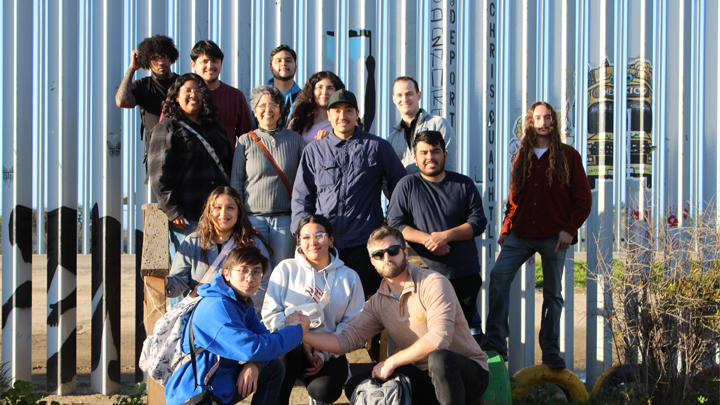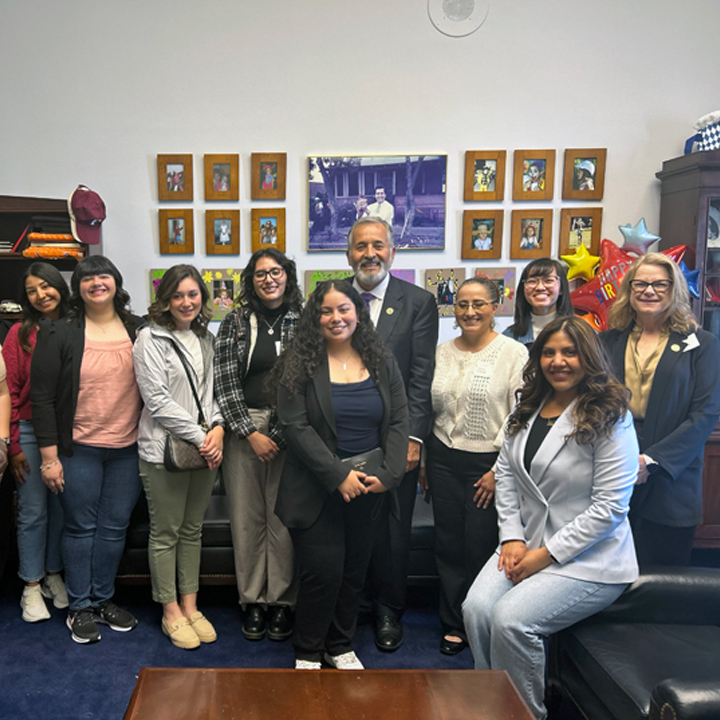Crossing Borders: Students Dive into Sustainability Work in Tijuana

This spring, SDSU’s PA 485 Practicum is doing far more than just teaching students about public policy; it’s putting them in the field, on the ground, and across borders to make an impact. Led by Kristofer Patron-Soberano, a lecturer in the School of Public Affairs and Program Manager for NextGen (Better Food Futures), the course brings students face-to-face with real-world sustainability challenges in Tijuana, Mexico.
“This class is about building a bridge between theory and practice,” said Patron-Soberano. “We’re not just learning about policy, we’re living it, alongside our partners and community members in Tijuana.”
Over the semester, students have participated in five field visits across the border, engaging with two major community partners: CETYS Universidad and the nonprofit Proyecto Fronterizo de Educación Ambiental (PFEA). These partnerships have allowed students to contribute meaningfully to ongoing environmental justice, citizen science, and community resilience efforts.
One key project has taken shape in the Arroyo Alamar, a natural waterway in Tijuana suffering from severe environmental degradation. In collaboration with CETYS Universidad, PA 485 students have met with residents, listened to their stories, and co-created ideas for green infrastructure, placemaking, and environmental education. “The students visited the community and saw firsthand the state where the residents live,” said Patron-Soberano. “They weren’t just observers—collaborators, bringing proposals back to CETYS to keep the momentum going.”
In another initiative, students worked with PFEA and CoastKeeper on a project supported by the San Diego Foundation, focusing on bi-national water quality and erosion. Students joined focus groups, supported data analysis from both sides of the border, and helped create a comparative analysis. “They got a front-row seat to the complexity of cross-border environmental policy,” said Patron-Soberano. “But more importantly, they were able to contribute ideas grounded in community need and academic training.”
The PA 485 Practicum exemplifies how academic learning can be deeply rooted in place-based, cross-cultural collaboration. The culminating experience will be a final presentation on May 6, where students will showcase their projects, many of which were built with direct input from Tijuana residents and organizational leaders.
Looking back on the semester, Patron-Soberano best summarized it: “The purpose of the class was that students learn through a practical and applied lens and contribute to the communities they engage with, so the relationship is not extractive but reciprocal.”
This kind of work doesn’t just educate, it transforms. It shapes professionals who are policy-aware, culturally grounded, community-minded, and ready to lead across borders.


